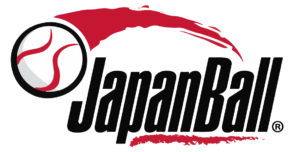January 20, 2022
By Carter Cromwell
Given that her father played baseball and her mother was a member of the 2000 Italian Olympic softball team, one could easily assume that Erika Piancastelli’s path to softball stardom was pre-ordained – mapped out early on and rigidly adhered to.
But not really. Her road to this point has covered many miles and been somewhat winding, but she’s never carried a map and detailed instructions.
“I never thought that far ahead – about the future,” Piancastelli acknowledged, “and I never thought softball would take me this far. Softball wasn’t in the Olympics when I was younger, so it was a good while before I realized what I could do with the sport and where it could take me.”
Indeed. From Italy to southern California, to Louisiana and back to Italy. In 2021, she divided her time between Italy and the United States, depending on where she was playing, and she’ll add Japan to her itinerary in 2022, having recently signed a contract to play for SG Holdings in the top Japanese league.
Her journey to this point began in Modena, Italy, where she was born in 1996. When she was five years old, the family moved to Carlsbad in southern California when her computer-programmer father had an employment opportunity.
“He had a very good position in Italy, but he put his name on a job web site and, to his surprise, got an offer from a company in California. They thought they’d be there for a couple of years or so.”
Instead, it was a couple of decades before the parents returned to Modena. In the interim, Piancastelli and her twin sister grew up playing various sports but weren’t driven by their parents. The parents coached them for a couple of years when they were young and playing in recreational leagues, but they wanted them to try all sports and didn’t push either to play a particular one.
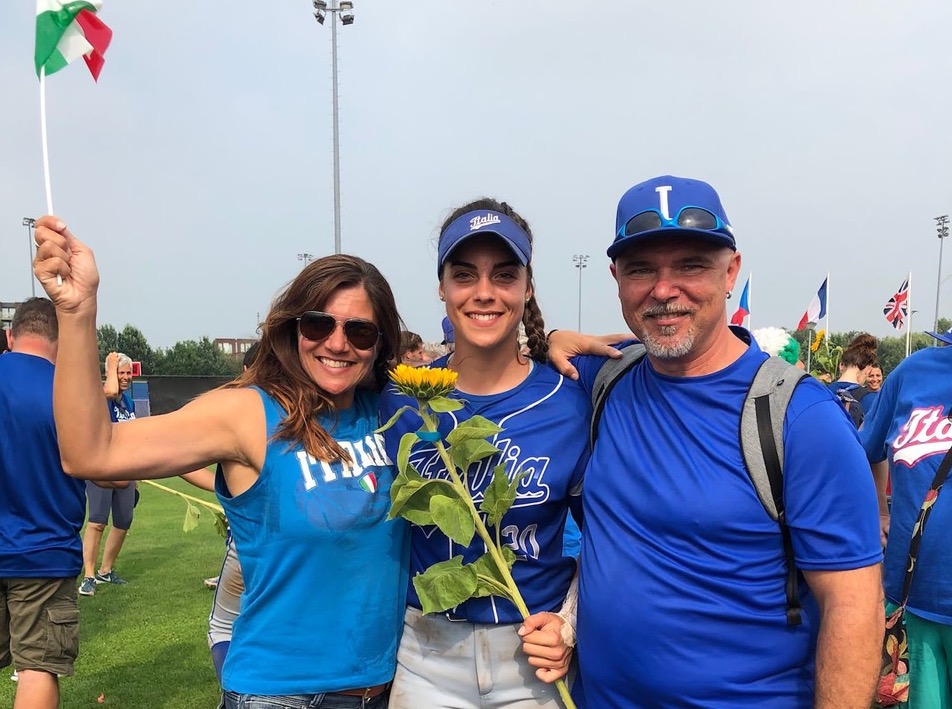
Photo: Erika with her parents—Loredana Auletta and Pier Andrea Piancastelli—after winning the 2021 European championship
“If they had forced it on us, we might not have played as much,” she said.
Piancastelli’s sister eventually chose basketball and played it through junior college, while Erika stayed with softball as a catcher and sometimes first baseman and outfielder, but without an all-encompassing drive to go as far as she could with it. She eventually found her way to McNeese State University in Louisiana – a world away from southern California – but even that kind of, sort of just happened.
The summer prior to her junior year in high school, she was with a travel team at a tournament in Colorado. A coach saw her at a clinic for pitchers and catchers the day before the tourney began and later contacted her. She eventually committed to McNeese before her junior year even started.
“I hadn’t really thought about college at that point,” Piancastelli said. “I was never that person who was looking to go to college and play, so I was never striving for it. But it was my only scholarship offer, and three other teammates were going to McNeese. Plus it was a full ride, so I went ahead with it, even though it was a long way from home and in a very different environment.”
And that’s when it began to dawn on her that softball might be a vehicle that she could ride a long way.
In her first game with McNeese in February 2015, Piancastelli was 2-4 at the plate with a double and an RBI, and she never slowed down. By the season’s end, she was the team leader in hits, batting average (.430), RBIs (54 in 55 games), home runs (a then-school record 18 that she later exceeded), doubles and slugging percentage (.905). She earned Freshman-of-the-Year, Player-of-the-Year, and Hitter-of-the-Year honors in her conference, as well as third-team all-America recognition.
“There was definitely an Aha! moment there, or at least the beginning of one,” she said. “I’d always loved playing, but I then started to think about reaching the highest level that I could. Like the Olympics – I never thought about that until I got to college. It was just that overall freshman experience that got me going – playing 50 games, working out all the time, and just seeing what it takes to play a full season.”
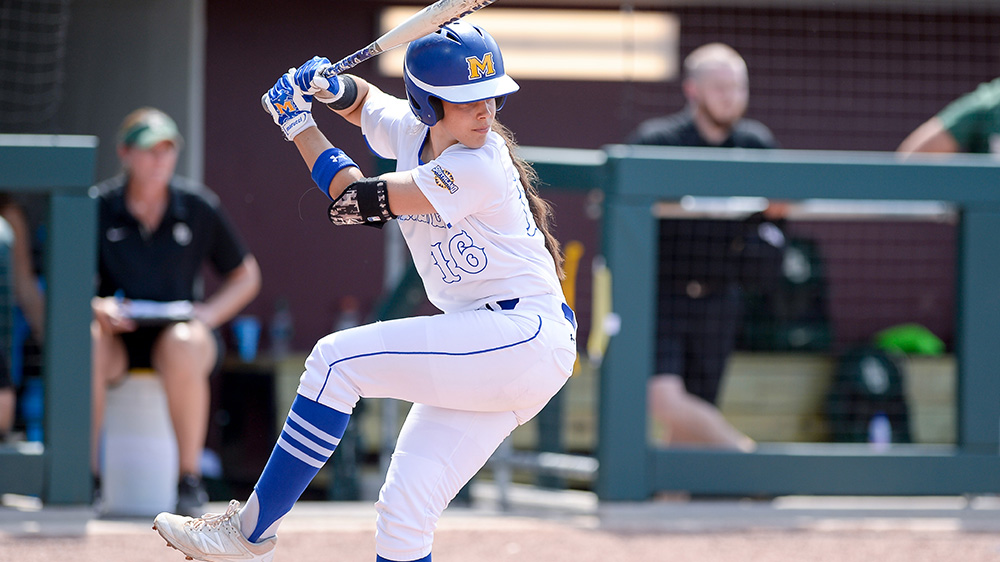
Photo: Erika hit .401 with 75 HR in her four years playing for the McNeese State University Cowgirls
Clearly, she had what it took, as she continued her first-year success throughout a career that finished with the 2018 season. Piancastelli was voted the Southland Conference Player-of-the-Year and Hitter-of-the-Year in each of her four collegiate seasons and remains the conference record-holder in RBIs, home runs, doubles, slugging percentage, and bases on balls.
Playing at catcher and third base, she batted .401 over the four seasons with a .560 on-base mark and .868 slugging percentage, as 56 percent of her hits were for extra bases. She drove in 212 runs in 235 games and had a 79-percent success rate at base-stealing. She had a slugging percentage of 1.000 in her sophomore year. During her time there, McNeese won consecutive conference tournament championships and reached the NCAA playoffs for the first time.
In addition, she would go back to Italy each year and play for the national team before returning to McNeese.
Greta Cecchetti also played college ball in the United States at Texas A&M – Corpus Christi, which is in the same conference as McNeese, but she had finished her career by the time Piancastelli began hers. Since then, though, she has played with and against Piancastelli beginning with the 2015 European championships. She now plays for Bollate in the Italian league, though in a different pool than Forli, so their teams meet only in the playoffs. In addition, she will play with Piancastelli on the SG Holdings team in Japan.
“She was known for her offense, but she has a cannon for an arm and is really hard to steal against,” Cecchetti said. “She sometimes is a designated hitter, but not too often because she’s someone you want on the field.”
“People have always had great things to say about Erika. When I first played on the same team with her, she was very quiet – just sitting back and listening – but she gradually became more of a leader and found her voice. She’s a person people look up to.”
Rosellini Francesca, known to most as simply “Juni”, has coached Piancastelli’s team in Forli for the past two seasons, but he’s been aware of Piancastelli for much longer. A native of Aruba who has lived in The Netherlands for 30 years and once coached the Dutch national softball team, Francesca first saw her play in 2015.
“At the time, she had just finished her first year in college in the U.S., but she was burning up our league, and they added her to the Italian national team,” Francesca said. “Even then, everyone could see that she could play. By the time of the European championships that year, she moved up to the first team. I saw a kid who, at 17, could hit the ball 120 meters (393 feet) and also had a great throwing arm. She was a pioneer of the leg kick, as well; now, you see more and more players trying that. She was doing things at an age at which most kids could not.”
Now, at 25, she still is. She captained Forli to the league championship in 2021, as well as captaining the Italian national team to the European championship and then getting to the Olympics with Team Italy.
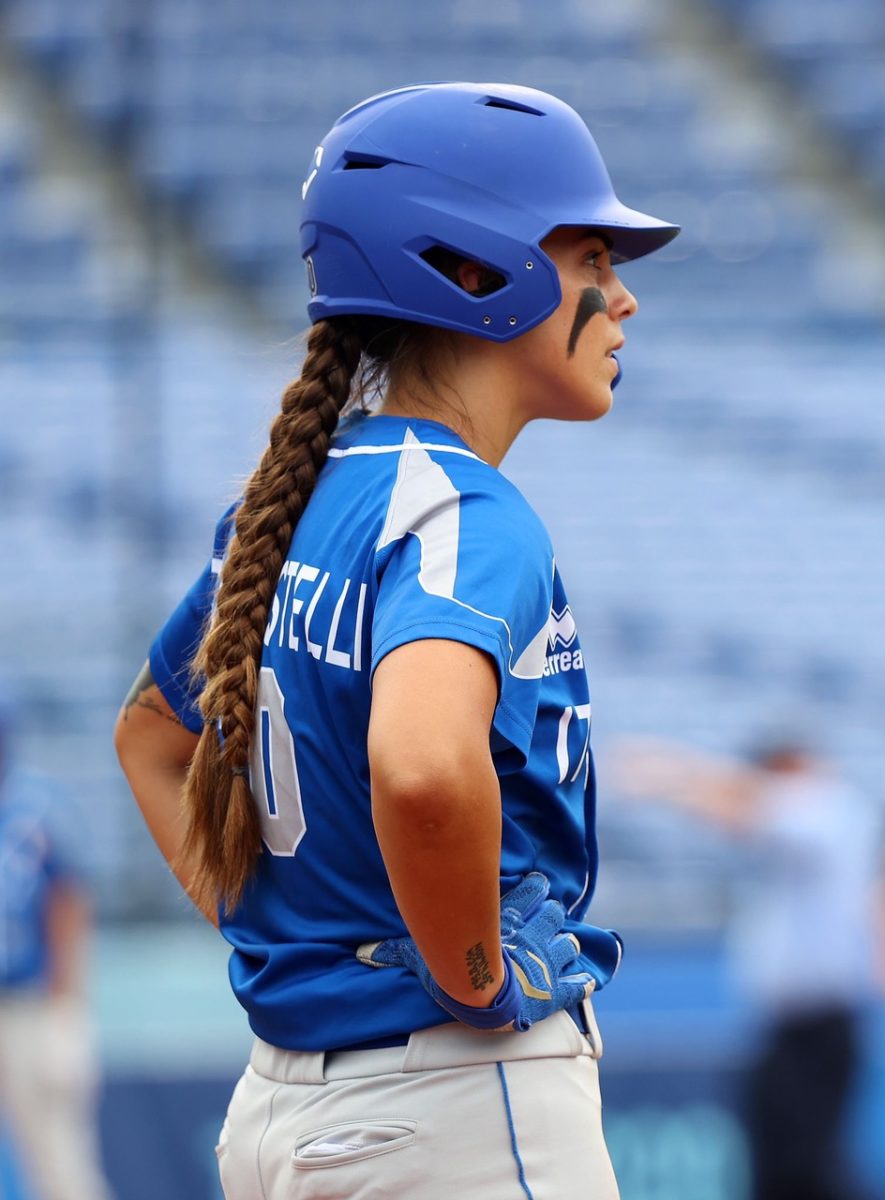
Photo: Erika playing for Team Italia
“One of her strengths is being able to change and adapt,” Francesca said. “Her load and balance are good, and her bat speed is super-high, but she’s also learning to keep her hands back more and stay in the zone a little longer to better deal with low, outside pitches. She’s a more mature hitter now; before, she only knew to hit the ball hard.”
She was busy enough in 2021 that she could have been forgiven if she occasionally forgot where she was playing and for whom. In addition to the club in Forli, she also captained the Italian national team that won the European Cup, added Olympic experience to her resume, and then played her second season in Athletes Unlimited, a league in the United States.
The Italian national team had lost its head coach, Enrico Obletter, in February to complications resulting from Covid-19, but the club rallied to win the European Cup and then participate in the Olympics. Reaching the Olympics was a dream come true for Piancastelli, especially since her mother, Loredana Auletta, had preceded her as a catcher and third baseman in the 2000 Games.
“I always wanted to be like my mom,” she said. “She wants me to be like her, but even better. That drives me to keep getting better every day.”
The 2021 Italian club faced stiff competition in the Games, going 0-5 against the United States, Australia, Japan, Mexico and Canada. Piancastelli was 2-15 overall.
“Our pitching and defense kept us in the games, but we didn’t hit well,” Piancastelli said. Cecchetti agreed, saying, “We weren’t used to facing pitching that was that good.”
“Still,” Piancastelli said, “The summer was huge for Team Italy. We won the European championship and then the Olympic qualifying. Getting to the Olympics was a huge accomplishment. We played a lot better than I expected, and it was an amazing experience that can only help going forward.”
Following the Olympics, she went to Chicago to play in Athletes Unlimited, which includes top players from around the world and utilizes an unusual format. There are four teams; the season lasts six weeks; and players change teams on a weekly basis. An alternate scoring system enables players to earn points. The top four point-getters at the end of each week become captains and draft players to form teams for the coming week. Players earn points from individual innings won, overall team wins and individual stats. Their points determine their rankings, which are used each week for the draft.
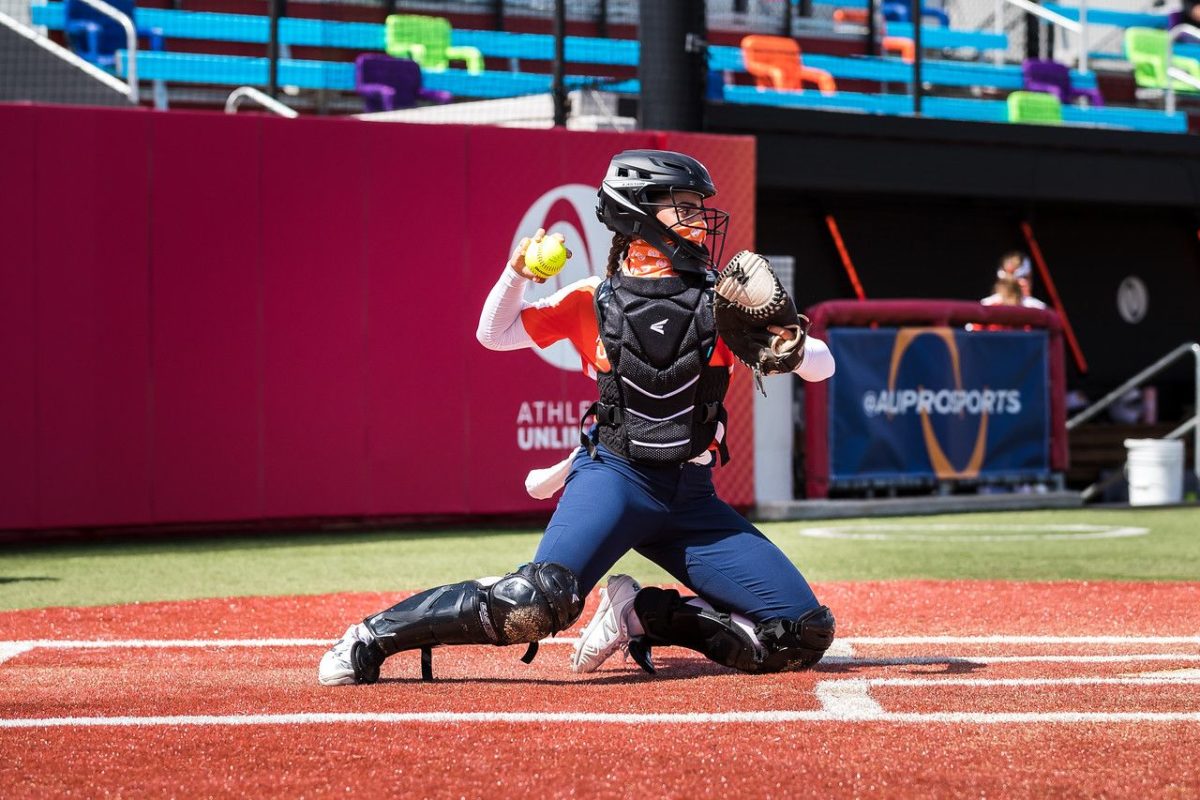
Photo: Erika playing with Athletes Unlimited
“It’s really fun and challenging,” Piancastelli said. “The format is unique, and the level of competition is high. They had reached out to me in 2020 to see if I was interested, and I did well enough that I was invited back for this [the 2021] season.”
In her first two seasons in Athletes Unlimited, she has batted .295 with 12 home runs and 25 RBI in 30 games, while slugging .884 in 2020 and posting a .418 on-base percentage in 2021. She is under contract with AU for the next two seasons, and she’ll divide her time in 2022 between Japan and the U.S. The Japan league has a split season, so she’ll play there in the spring, compete in Athletes Unlimited in the summer and then return to Japan for the fall season. And, as time allows, she’ll play for Team Italia.
The lure of playing in Japan is that the competition there is at a very high level. The Japanese have won the two most recent Olympic softball gold medals.
“It will be great to experience that and see where it takes me,” Piancastelli said.
Which leads to the broader question of what her future holds. As for softball, Francesca is certain that she can take that far.
“She and [Britt] Vonk [a middle infielder for the Dutch national team who attended college in the United States] are the only players in Europe that have a chance to play in the pro leagues,” he said. “They both played in the [Athletes Unlimited] league in Chicago. They have more experience playing against top competition and get more at-bats against class pitchers, so you can really see the difference when they play. Vonk has been the best European player for 10 years or so, but Erika is the best at the moment.”
She indicated that she’ll be alternating between Europe, the U.S. and Japan for the foreseeable future.
“In a way, Italy will always be home because most of my family lives there,” said Piancastelli, who holds dual U.S. and Italian citizenship. “When I was young, I always wanted to move back there. But I’m kind of confused now as to what is home. My sister still lives in Carlsbad [Calif.], so I imagine I’ll be bouncing back and forth a lot.
“A lot of what has happened wasn’t anything I really planned. Then I look back and see the whole journey, and it’s better than anything I’d ever imagined.”
Travel the world using baseball or softball as your ticket
Our baseball and softball members get paid to play or coach overseas year-round, mostly in Europe and Australia.
There are a variety of levels overseas which present opportunities for both the college grad and the established professional.

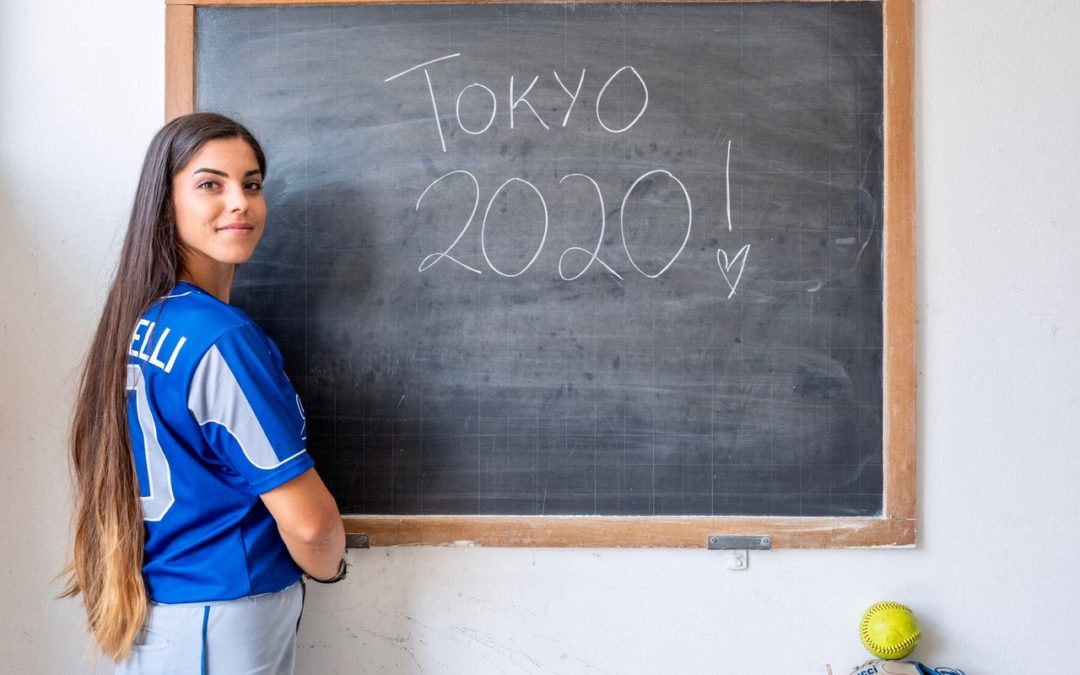
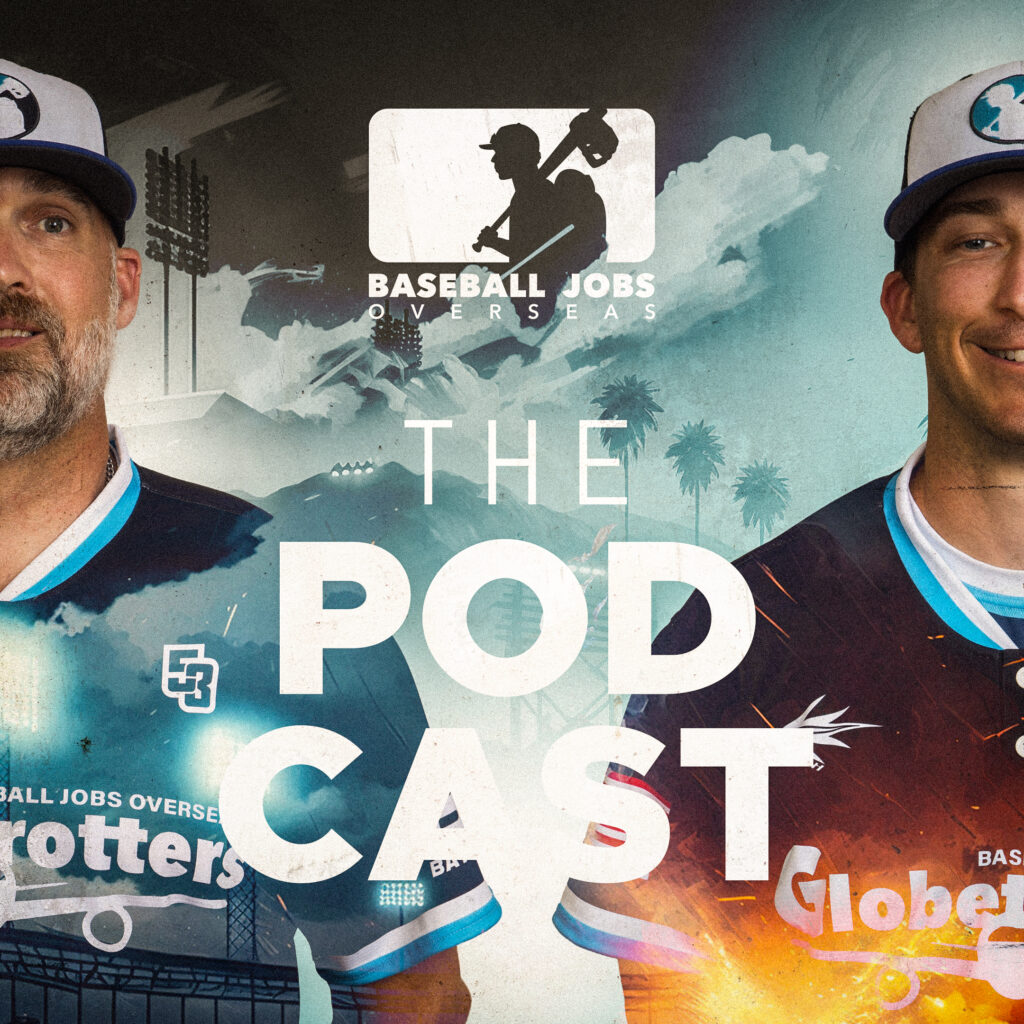
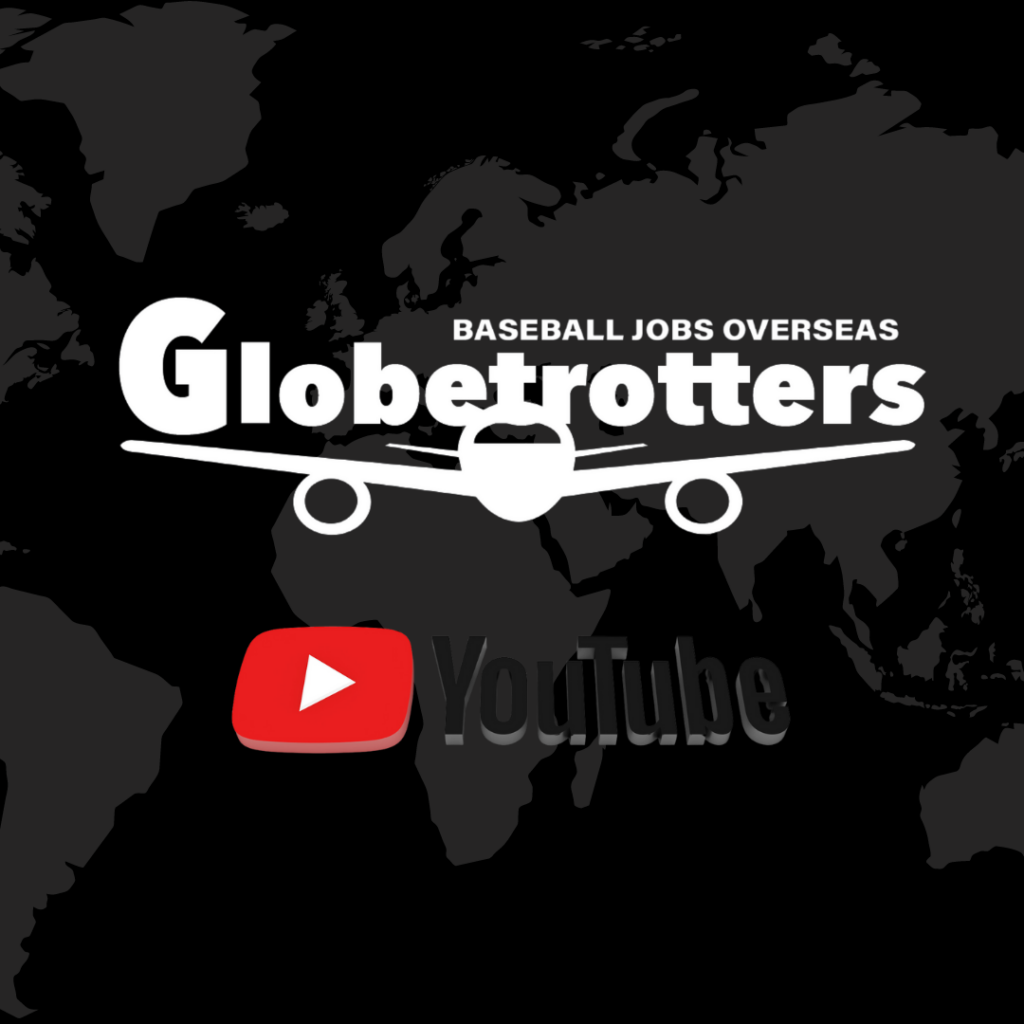
 Moonshot is a baseball apparel company based out of Mannheim, Germany, and is owned and operated by a good friend of ours, Juan Martin. What separates Moonshot from the other companies we have used in the past, is the value for your money and the customer service. You will not find prices like this in Europe or someone that responds faster.
Moonshot is a baseball apparel company based out of Mannheim, Germany, and is owned and operated by a good friend of ours, Juan Martin. What separates Moonshot from the other companies we have used in the past, is the value for your money and the customer service. You will not find prices like this in Europe or someone that responds faster. 
 High end, professional wood and composite bats with a wide selection of models using many different types of wood from Japan, North American and Taiwan. Hakusoh Bat is approved with the WBSC and across Europe.
High end, professional wood and composite bats with a wide selection of models using many different types of wood from Japan, North American and Taiwan. Hakusoh Bat is approved with the WBSC and across Europe. 




